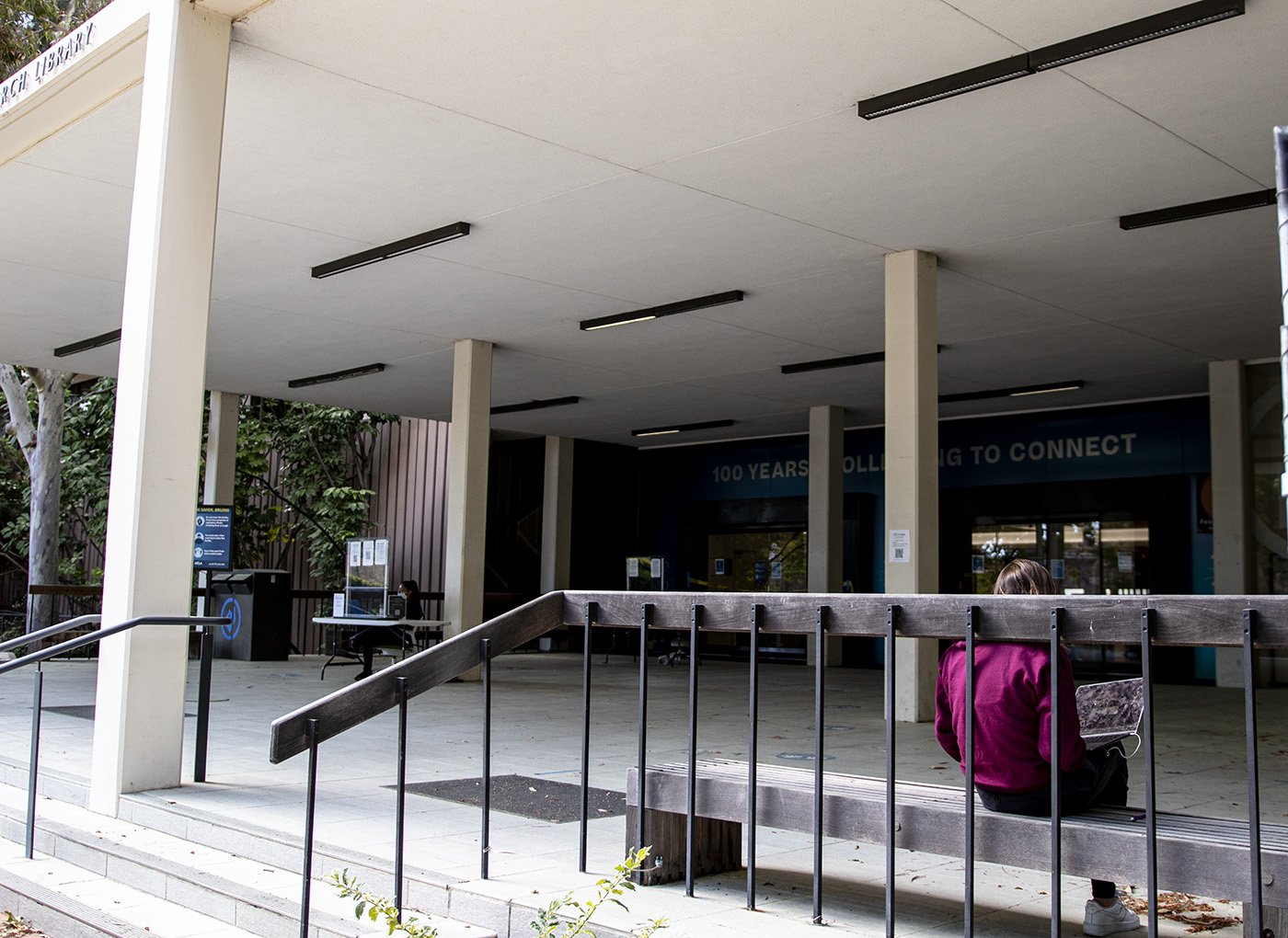Opinion: Pandemic-driven academic accommodations should outlast online learning

The transition to in-person instruction will be tough, but departments can alleviate students’ stress by instituting universal accommodations and flexible academic policies. (Javier Jauregui/Daily Bruin)
This post was updated May 31 at 6:08 p.m.
The COVID-19 pandemic redefined Bruins’ standards of normalcy.
And as life slowly returns to what it once was, UCLA needs to rethink its academic policies.
Since spring 2020, most students have been forced to attend Zoom classes and online discussions. The unprecedented nature of the pandemic prompted professors to implement more flexible academic policies such as recorded lectures, asynchronous learning options, open-note examinations and extended windows for testing.
Despite California’s gradual reopening, academic departments at UCLA must continue to provide testing flexibility and academic leniency after the pandemic. The pandemic has highlighted the need to prioritize students’ well-being, and the end of the pandemic should not stop professors from taking this into account.
Promoting Bruins’ health must be a continuous initiative undertaken by all.
Test taking is often a stressful experience for students and will continue to be once Bruins return to campus. To ensure a smooth return to in-person learning, departments should actively listen to student feedback and consider implementing universal accommodations.
Putting student voices at the center of academic policies will create lasting results. Though fall quarter is still months away, departments need to start having these important conversations now.
While most classes in the near future will likely be offered in person, professors can continue recording their in-person lectures through broadcasting software such as BruinCast or Lecture Capture.
First-year psychology student Pasawat Sakulpanich said recorded lectures are essential in an in-person learning environment, as students may have personal or professional events that interfere with classes. These lectures can also be an effective review tool for students, he added.
“You might want to go back and review what the professor was saying at this specific time, because sometimes the lecture slides don’t make sense,” Sakulpanich said. “You actually have to hear the professor say things.”
Current testing protocols may also prepare students for post-graduation life by allowing them to apply and analyze content in an environment that more closely resembles the workplace.
“I feel like that reflects the real world a bit more,” Sakulpanich said. “(Open-note tests) are a much better way to test your knowledge and application skills.”
Memorizing pages and pages of easily researchable facts is likely not a skill students will need to use after they graduate. Instead, professors should allow students to apply their learning in a more engaging manner.
For example, project-based assignments, discussions and essays offer less stressful alternatives that can increase the quality of learning. According to a 2012 summary sheet from Intel, the project-based learning model boosts students’ attitudes toward learning while providing better academic results than other assessment styles. With hands-on projects, there are greater opportunities for students to take responsibility and initiative over their own learning.
As the Academic Affairs Commissioner for the Undergraduate Students Association Council, Breeze Velazquez has advocated for academic leniency during the pandemic. Velazquez, a third-year Chicana and Chicano studies and public affairs student, said she sees a distinct advantage to certain learning practices over more antiquated ones like formal testing.
“I feel like in the classes where I didn’t have a timed setting … I actually enjoyed learning the material much more than the classes where I actually had to take an exam,” Velazquez said. “I didn’t have to actually stress about (memorizing) all this information.”
Academic policies during the pandemic have been the results of a renewed focus on student and faculty health, Velazquez said. She added that even after the pandemic is over, these accommodations should continue.
If simple changes in assignment formats can lead to marked improvement in both student mental health and academic performance, there is no reason professors should refrain from implementing them. Since the return to in-person instruction will certainly be difficult, academic departments can look into conducting quarterly feedback surveys to get a good idea of students’ needs. They can also work closely with student advocacy groups such as the USAC Academic Affairs Commission.
That being said, the online learning environment hasn’t fundamentally altered all courses. Jean Turner, an astrophysics and astronomy professor, doesn’t see significant changes in learning practices for certain coursework. Turner said her upper division course, which is organized around problem sets, has experienced minimal changes during remote learning. She added that she expects the basic examination and teaching style for these core STEM courses to be unchanged.
While novel teaching methods from the pandemic might not be applicable to every course, there are hundreds of classes on campus that could benefit from more lenient practices.
As the Bruin community returns to normalcy, it must promote academic leniency and implement universal accommodations. Students shouldn’t have to sacrifice their well-being just to do well in class.



